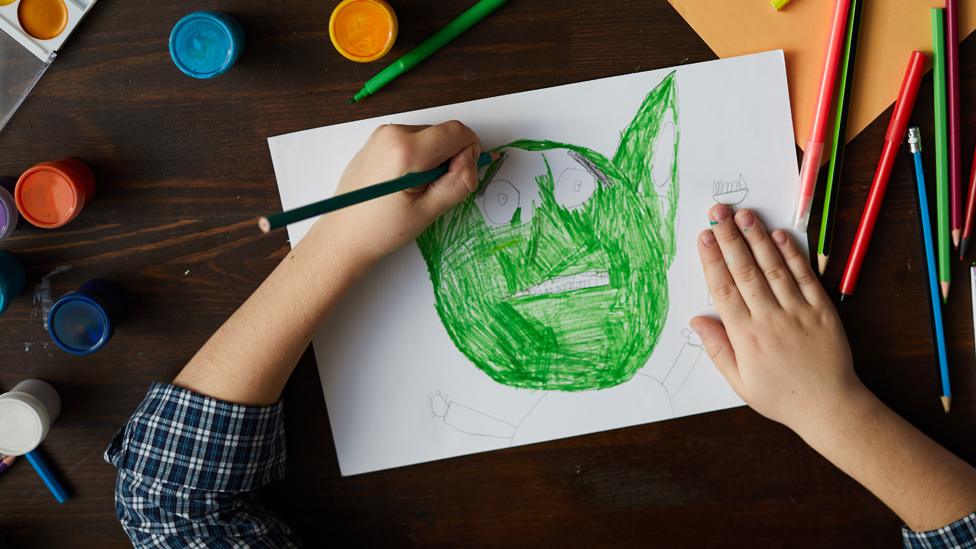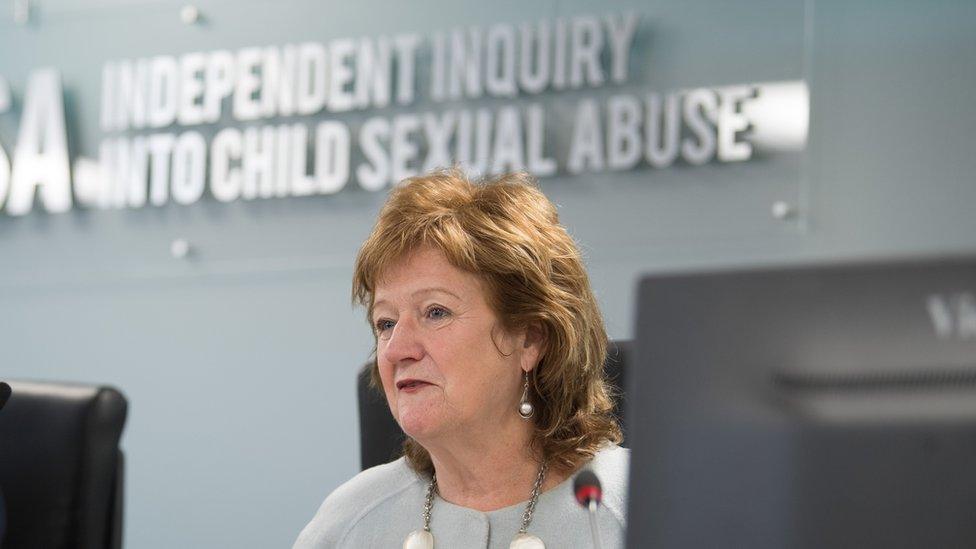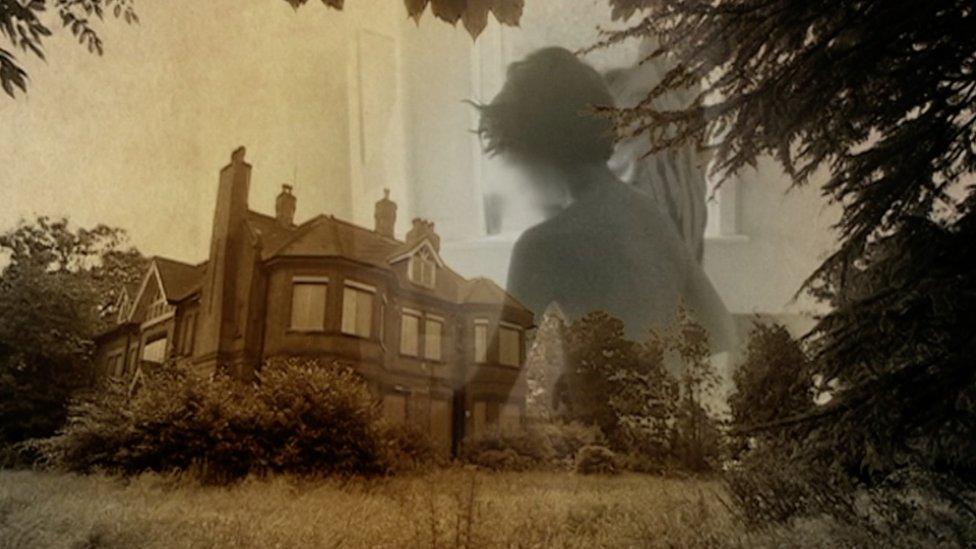Child sex abuse: Workers cannot be trusted to report concerns - Inquiry head
- Published
Clare Devlin spoke to the BBC about her experience of sexual abuse as a child by her father
Child protection professionals cannot be trusted to decide whether to report disclosures of abuse, the head of an independent inquiry has reiterated.
Professor Alexis Jay said staff did not report concerns when they could, resulting in more abuse.
Her comments came as she defended the inquiry's recommendation that failing to report should be a crime.
One MP on the Commons Home Affairs committee said the move would prevent staff from using their judgement.
Conservative Tim Loughton disagrees with the introduction of mandatory reporting, and the creation of a new child protection authority, another recommendation of the seven-year public inquiry.
"What saves a child is the professional judgement and training of people... who are paid to do this. That saves them, not a rulebook," he said.
He was also concerned that the police and social services would face a "huge amount of work" in dealing with reports of abuse, some of which might be made "vexatiously".
But Prof Jay has spent years hearing evidence about the cover-ups which led to child abuse scandals in children's homes, schools, churches and religious institutions.
She responded: "If you had heard the amount of evidence we heard from upstanding members of the community about upstanding members of the community who might be acting as volunteers... those reasons were given. I can make that judgement. I know enough about child protection, I can do this."
But she said "nothing happened" and the abuse continued.
"We were entirely convinced by the volume of evidence we heard on this matter. It turns out we can't necessarily trust everyone in that respect."
The Independent Inquiry into Child Sexual Abuse was created in the wake of the Jimmy Savile scandal to examine how institutions responded to allegations of abuse in England and Wales - both in the past, and today.
It said child abuse was an "epidemic" leaving thousands of victims in its "poisonous wake".
Prof Jay said when mandatory reporting was introduced in some US states, Australia, and Canada, the amount of cases initially went up but then settled down.
The proposed new laws would require anyone working in a legally-defined "position of trust" with children, to report any disclosure made by a child, perpetrator, or first hand witness of abuse.
The rules would be looser in some situations, including potential abuse within relationships between children.
The government is still considering its response to many of the inquiry's 107 recommendations, but mandatory reporting will be the most controversial because it requires the introduction of strict new laws.
Mr Loughton said he hoped and expected the inquiry's other recommendation, for new child protection authorities in England and Wales, would be rejected by ministers.
They weren't a "silver bullet", he said, and would be costly and powerless.
But Prof Jay said the new authorities were needed to improve the culture of child protection which had often been watered down in the face of other priorities such as stopping young people getting involved in crime or modern day slavery.
She told MPs that in the years her inquiry has been sitting abuse worsened because it had been facilitated by the internet.
The scale of the problem was "incontrovertible", she said.
"It should not be put under the carpet as it has been in the past."
With the Online Safety Bill currently going through Parliament, the government has said it would not "pre-screen" harmful material on people's phones before it was posted on social media, or break encryption to see if they were posting illegal or offensive pictures.
Prof Jay told MPs that in the debate over privacy and child protection "the inquiry is always on the side of child protection".
- Published20 October 2022

- Published20 October 2022

- Published20 October 2022
